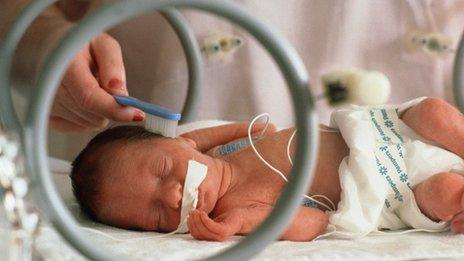Gordon and Sarah Brown's charity saves ex-leader's grandchild
- Published
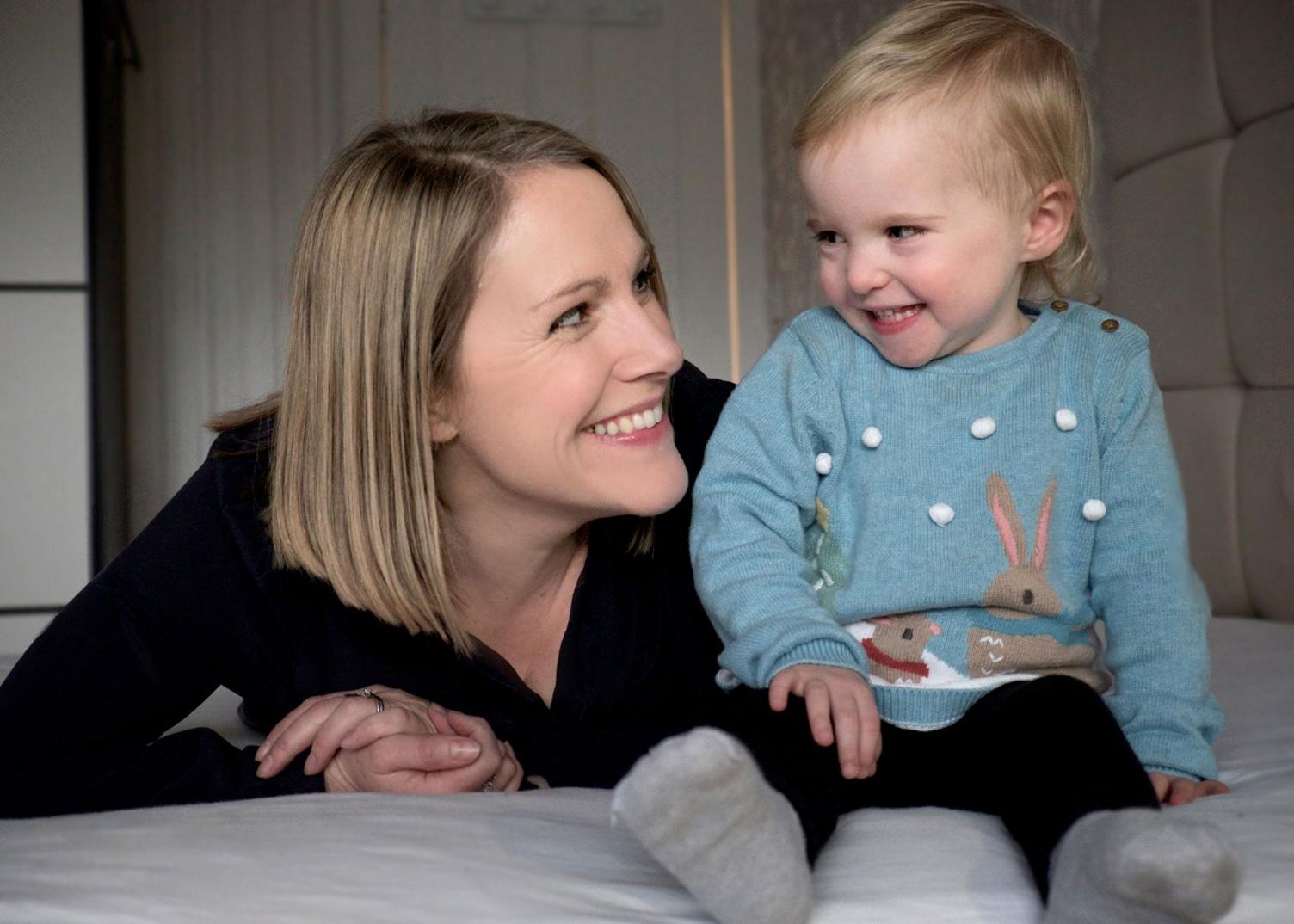
Ella was born to John Smith's daughter, Catherine Smith
When Catherine Smith's daughter Ella was born prematurely at 28 weeks, she feared the worst would happen.
Ella weighed just 1lb 10oz (737g) and was about the size of an adult's hand. For weeks she was kept in an incubator.
Catherine, the daughter of ex-Labour leader John Smith, said she knew little about premature babies at the time.
"I didn't really think there was that much chance of survival," she told the BBC.
But Ella survived - thanks to a research centre set up by former prime minister Gordon Brown and his wife Sarah after the couple's 10-day-old baby, Jennifer, died in 2002.
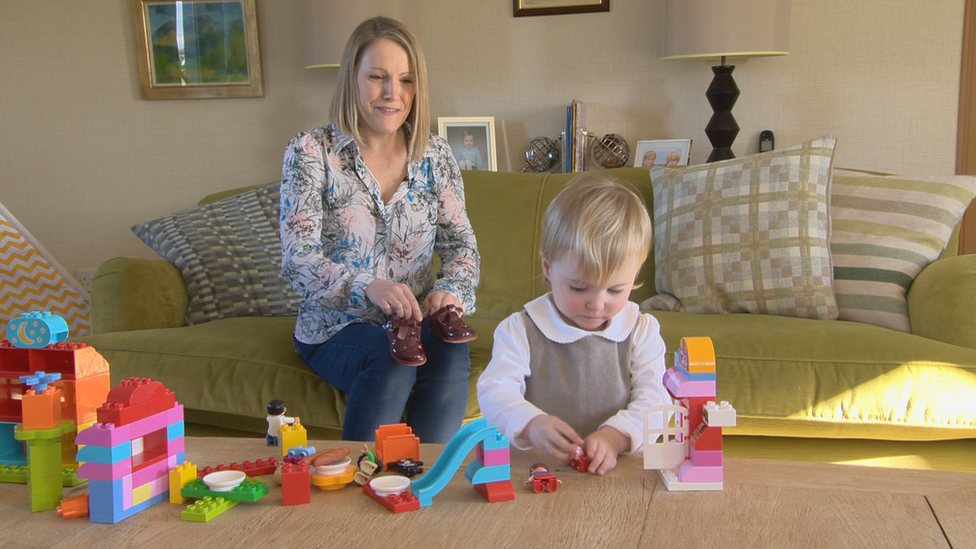
Following the death, the Browns founded the charity PiggyBankKids - now known as TheirWorld - in memory of their daughter.
And in 2004, the charity established the Jennifer Brown Research Laboratory (JBRL) at the University of Edinburgh.
The JBRL looked at ways to help premature babies thrive, including research into how much oxygen should be given to babies in incubators.
It was this research that was to prove absolutely crucial to the survival of Ella 15 years later.
Catherine's father had been one of the former prime minister's closest political allies.
She became aware of the link between the Browns' charity and her own daughter after Ella started to pull through.
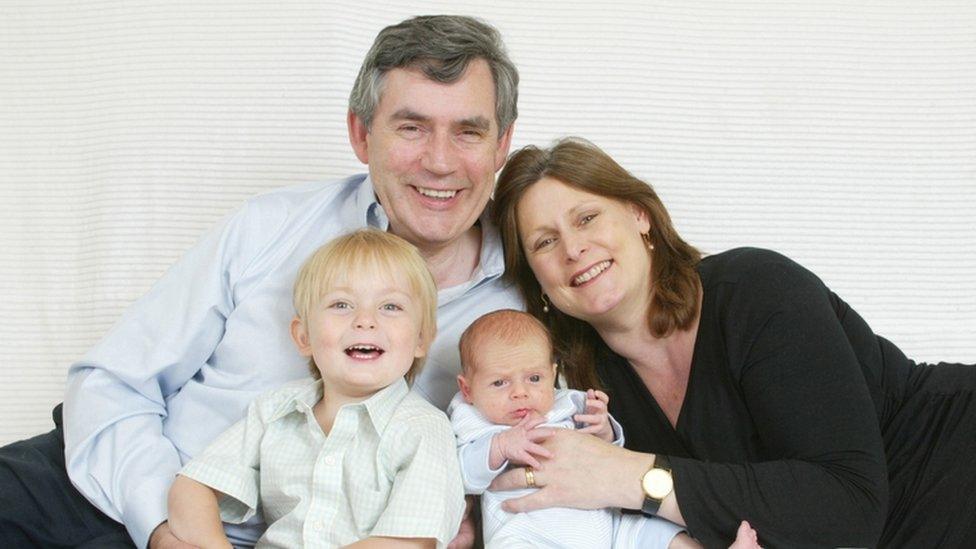
The Browns with their children John and James Fraser in 2006
"I thought I could donate to their research lab - because I knew they'd set up a research lab in Jennifer's name," said Catherine.
"I went on the website to try to make a donation, and I read a little, and I realised that some of the work they had done had impacted directly on the care that Ella was getting - and that was just incredibly moving."
Work done by scientists at the JBRL established that giving a premature baby too much or too little oxygen could seriously damage its chances of survival.
"By the time Ella was getting care this change had made its way into clinical practice and it was one of the things we were very aware of because the machine that was monitoring oxygen was constantly going off," said Catherine, from Dundee.
"If the oxygen went too high or too low an alarm sounded and that would happen many times in an hour. It was so obviously being monitored very strictly and very closely.
"That was as a result to the work done in Jennifer's name. I really think it made a difference. I personally believe it had a direct impact on her survival and it is humbling."
Speaking to the Daily Record, external, she added: "What Gordon and Sarah have done is the most extraordinary gift. They've given us our daughter."
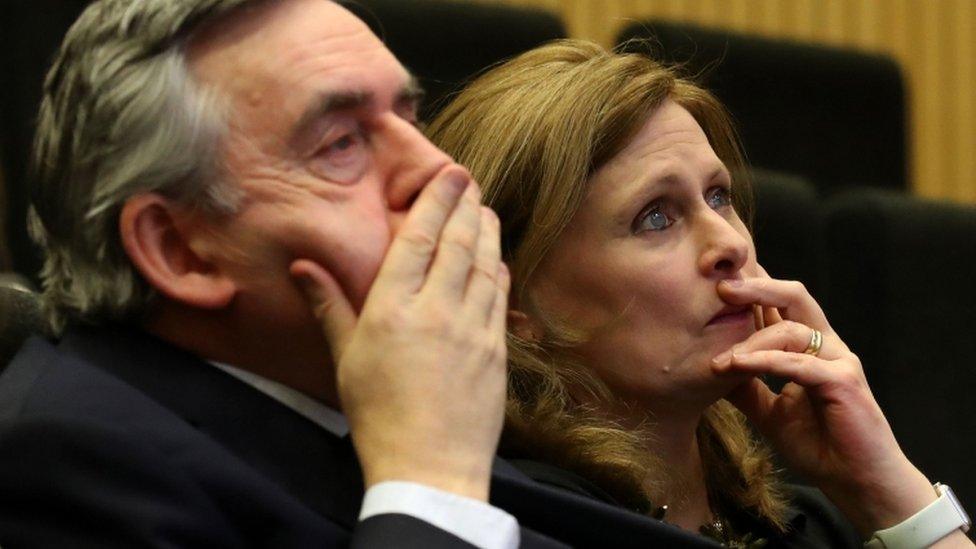
Gordon and Sarah Brown listen to speeches at the Jennifer Brown Research Laboratory in Edinburgh
Sarah, 53, said she first heard of Ella's birth after Catherine wrote them a letter.
She told the BBC: "Gordon had opened it and came through and shared it.
"She'd written saying that Ella had arrived, that she was thriving, that they were looking forward to a chance when she might go home in the near future - and that she recognised this link."
Sarah said it made her "proud" to know that research carried out in the lab had become part of medical practice and was helping to save babies' lives.
"That they've helped Ella is enough, but that I also know it helps other babies in the future is really important," she said.
Speaking about her daughter Jennifer, Sarah said she had received "extraordinary care" from the NHS during her 10-day life.
'Amazing sons'
"I know that things could have been different and we may even have missed out on that so that's very precious to us.
"But the loss is very deep and the loss will be with us always. We have two amazing sons but we will also have Jennifer in our hearts."
She added: "I feel very privileged that the lab is named for Jennifer, but truthfully there are many parents who have lost children who have contributed and who are still very much a part of how we create the work, how we raise funds to support the work.
"There's a lot of us in it together."
Ellla is now two years old and in "absolutely brilliant" health, according to Catherine.
The two women had an "emotional lunch" after Catherine wrote to the Browns - though she admitted it had been difficult to talk about Ella at first, as their experiences had been so different.
But she told the BBC that Sarah had insisted she should not feel guilty.
"Sarah said to me absolutely straight: 'Don't be ridiculous. What's the point of the lab, what's the point of all the work we've done in Jennifer's name if it isn't for an Ella?'"
- Published16 November 2015
